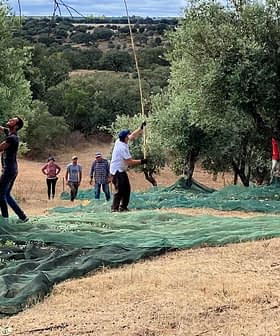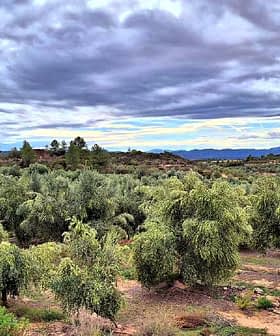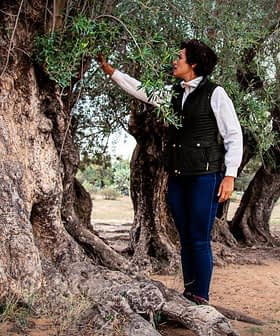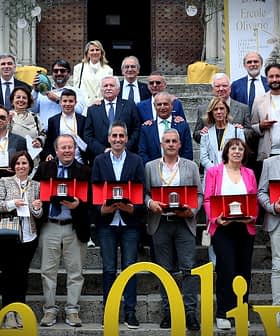In Latest Bid for Relevance, Council Seeks to Standardize Competitions
The International Olive Council, facing challenges and waning interest in its own olive oil competition, has offered its endorsement to rival competitions that meet its conditions, including proving samples are from a uniform batch of at least 3,000 liters. The IOC’s efforts to resuscitate its image and influence have been met with skepticism and criticism, with key industry figures like Curtis Cord expressing disinterest and continuing to promote high-quality olive oils independently.
Operating under a temporary extension of an expired charter and facing waning interest in its own annual olive oil competition, the International Olive Council (IOC), in an open letter to organizers of rival competitions, has offered its endorsement, or “patronage,” to the ones that meet its conditions.
an ineffective agency’s latest effort to reduce an industry to the lowest common denominator
Among the prerequisites for the use of the words “competition held under the patronage of the International Olive Council,” according to a draft of the proposed rules are: entrants must prove submitted samples are from a uniform batch of at least 3,000 liters, and each producer may submit just one oil to the competition.
The IOC’s own competition, the Mario Solinas Quality Award, has long been viewed as a lopsided and under-promoted event, little noticed even within the olive oil industry. It is one of the smallest of the international competitions: Last year’s contestants included just two oils from Italy and six from Greece, and just 3 entries from the entire Southern Hemisphere. Winners were merely listed on a static PDF and garnered scant attention beyond the IOC’s own website.
Among the other proposed conditions for the IOC’s blessing of rival events that compete with its own, entry fees cannot exceed €100 ($113.90) and “must only cover the costs of holding the competition,” a rule that would exclude nearly every international olive oil competition at present.
The entry fee price-fixing is a bewildering bid to reduce olive oil quality competitions to the lowest common denominator, undermine a free market and disregard the fact that a competition that no one knows about is worth little to the participating producers.
Like other food or beverage competitions, olive oil competitions draw broad public attention to the value of high-quality olive oil, generate meaningful publicity for winning brands, and reward top producers of all sizes. With little or no money in its own dwindling budget for the promotion of olive oil, the IOC’s latest initiative seems to cater to the larger producers and bottlers the agency is beholden to, by seeking to control which producers get recognized.
“It’s dead on arrival,” said Curtis Cord, the organizer of the New York International Olive Oil Competition — the world’s largest — and publisher of Olive Oil Times, who said he has no interest in the IOC proposal nor its endorsement. “I wish the Council good luck with its pursuit. Meanwhile, we will continue on our course to independently identify, celebrate and publicize the best olive oils in the world, free of the IOC and its unproductive policies.”
Resuscitated last summer only by a last-minute extension of the agreement governing its existence, the Madrid-based IOC has had a rough few years.
In an effort to “promote positive writing by journalists about the olive industry,” the IOC in 2012 held a contest saying it would award €5,000 for the best article “promoting the desire to discover and enjoy olive oil and table olives,” only to cancel the contest due to a lack of entries.
It operated in a state of limbo for much of 2013, unable to do anything more than pay its staff, and even failing to represent the sector at an important meeting of the Codex Committee on Fats and Oils.
Last year on the brink of expiring along with its charter, the Council and its director, Jean-Louis Barjol, were saved by a 12-month extension while members, currently led by Turkey, debate its purpose and negotiate an agreement to continue.
None of the world’s five largest economies are members of the IOC. Barjol, a former sugar industry professional, made United States membership a key objective of his tenure, but the U.S. has maintained it has no intention to join the intergovernmental organization.









